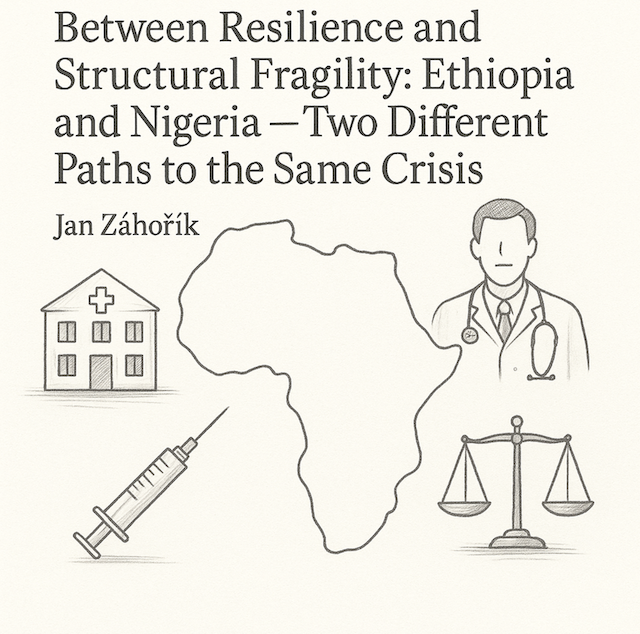Poverty is often identified as the primary factor attracting young people to join extremist organizations. The lack of job opportunities, especially in areas affected by civil war, can make this option seem viable. For instance, in the Syrian Badia, where pockets of the radical terrorist organization "Islamic State" are present, extreme poverty is rampant.

The international coalition forces, which fund the "Syrian Free Army", do not provide adequate humanitarian aid to civilians under their jurisdiction. Consequently, some young men in these regions may be swayed by material incentives to cooperate with terrorist cells, whether affiliated with the Islamic State or the Fatemiyoun Brigade.
Both the Islamic State and Shiite militias exploit the animosity between Arab and Kurdish clans, enticing Arabs to join their ranks to combat the separatist Kurds. Interestingly, the jihadist cultures among Shiites and Sunnis bear similarities, as both sides seek to unify the Islamic world under a single banner.
Consequently, federal projects like the Kurdistan region of Iraq, and its counterpart in the "Autonomous Administration of North and East Syria", are not favored by the Arab populace. This sentiment arises from their upbringing in Syrian and Iraqi schools advocating for the Arab unity project, "one Arab nation with an eternal message". Therefore, the majority of Arab nationalists oppose Kurdish aspirations for independence, which are deeply embedded in Kurdish literature. This disagreement prompted Barzani to conduct the September 2017 referendum, leading to widespread resentment among Iraqi Shiites and Sunnis towards the Kurds.
In the absence of a Sunni force with international backing, extremist advocacy groups actively recruit Sunni youth, claiming they are fighting against Kurds or infidels. In Islamic literature, the term 'infidel' extends beyond atheists to all non-Muslims. From the Muslim perspective, Islam is the only valid religion, while the rest are considered mere laws and not as advanced as Islam. This perspective is based on the belief that the Prophet Muhammad is the Seal of the Prophets ("Certainly, Allah’s only Way is Islam. Those who were given the Scripture did not dispute among themselves out of mutual envy until knowledge came to them. Whoever denies Allah’s signs, then surely Allah is swift in reckoning.").
In Iraq, due to Shiite dominance in government, Sunnis generally feel marginalized. They acknowledge the political weakness of Sunni tribal sheiks and Sunni-majority parties, which are unable to control the Shiite-dominated militias that currently govern both the parliament and the Iraqi government. Consequently, some impulsive young people join extremist jihadi groups, believing these to be the only armed factions that permit retaliation against extremist Shiites.
Training:
Despite its defeat by the international coalition and the destruction of most of its weaponry, the Islamic State managed to amass a significant arsenal. Its field leaders retain individual weapons, suitable for their tactics of rapid raids.
Given their presence in the scarcely secured regions of the Syrian desert and the Iraqi Anbar, they can efficiently train new recruits. These areas offer ideal hiding spots, and the training is typically one-on-one, not requiring large numbers of fighters. The training regimen consists of two parts: First, sniper training, as the organization has skilled marksmen. Second, instruction in the deployment of concealed booby-traps, a tactic heavily relied upon by the organization.
Telecommunications:
Repeated targeting of jihadist leaders by the International Coalition to Combat Terrorism has led jihadists to avoid using cellular networks and the Internet to prevent their locations from being exposed. As a result, terrorist propaganda groups that rely on media execute their activities in populated areas under the control of the Syrian regime, such as Deir ez-Zor and Al-Bukamal, or operate undercover in the Idlib governorate. In reality, global recruitment of terrorists has become extremely limited due to heightened security measures. Also, the Islamic State lacks a tangible geographical area to call upon the mujahideen, without the consent of Hay’at Tahrir al-Sham. Therefore, any radical from Europe would likely join Hay’at Tahrir al-Sham, not the Islamic State.
From this brief overview, it becomes evident that the Islamic State's recruitment strategies are primarily aimed at ideologically preparing jihadists to execute terrorist operations within their home countries. Therefore, European and American security agencies need to enhance their surveillance of social networks, Islamic forums, and Islamic sermons, and monitor those who regularly visit them.
Moreover, the international coalition against terrorism must earnestly address the tensions between the Kurds and Arabs, and between the Shiites and Sunnis. This is crucial to prevent political Islamic movements from luring numerous Arab youth to their cause. This necessitates the establishment of a balanced political and military entity for the Sunnis in Iraq and Syria, ensuring the inclusion and influence of all Sunni youth within their societies.
.png)








